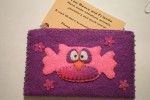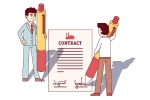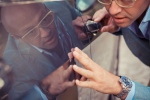Unless the person you share a bed with keeps you up all night, most people don’t consider snoring that big a deal. However, loud and frequent snoring could be a sign of sleep apnea, a common but potentially serious disorder that causes an individual to stop breathing during the night. While sleep apnea is easily treatable, the condition often goes undiagnosed as many people are either unaware of their snoring or don’t believe it serious problem. To help you understand the warning signs of sleep apnea, and what can be done to treat your snoring, here’s what you need to know about the condition.

What is Sleep Apnea?
Sleep apnea is a condition that alters the way you breathe while asleep. When left untreated, sleep apnea briefly interrupts your breathing or causes it to become shallow throughout the night. A pause in your breathing can occur hundreds of times a night, typically lasting anywhere from 10 to 20 seconds. When your body begins to breathe again, you are briefly jolted awake.
As a result of constantly waking throughout the night, you spend the majority of the evening in light sleep and less time in the deep, restorative sleep you need to feel rested, energetic, and mentally sharp the next day. Individuals who suffer from chronic sleep deprivation often experience poor concentration, slow reflexes, daytime sleepiness, and an increased risk of accidents as a result.
Studies have even shown that sleep apnea can also lead to a variety of long-term health problems, including increased weight gain, stroke, heart disease, high blood pressure, and diabetes. Fortunately, with treatment you can control your symptoms and start sleeping normally at night.
Types of Apnea
A typical apnea episode occurs when air flow stops during sleep, which causes the oxygen levels in your blood to fall. Your brain response to this lack of oxygen by briefly interrupting your sleep just enough so you start breathing once again. Whether you remember waking at night depends on the type of apnea you suffering from.
The primary types of sleep apnea include:
- Obstructive Sleep Apnea. The most common form of apnea, obstructive sleep apnea causes the soft tissue located in the back of the throat to relax during sleep and block the airway. This type of apnea is most recognized by the loud snoring the condition causes.
- Central Sleep Apnea. A far less common condition, central sleep apnea results when the central nervous symptom fails to send the proper signals from the brain to muscles that control breathing. Individuals who suffer from this type of apnea rarely if ever snore.
- Complex Sleep Apnea. The least common form of apnea, complex sleep apnea results as a combination of both central and obstructive apnea.
Sign of Sleep Apnea
Sleep apnea can be hard to self diagnosed considering the condition only occurs while you’re asleep. However, by asking a bed partner to observe your sleep habits or recording yourself while asleep, you can get a solid understanding on whether you simply snore or suffer from a type of apnea. Major symptoms of apnea include:
- Chronic and loud snoring
- Gasping, snorting, or choking during sleep
- Long breathing pauses
- Sleepiness during the daytime, regardless of how much sleep you received the night before
Other common signs of apnea include frequent morning headaches, fitful sleep, insomnia, moodiness, irritability, and depression.
Apnea Treatments
The most common treatment method for moderate to severe apnea is the use of a continuous positive airflow pressure (CPAP) mask. CPAP devices are roughly the size of a small tissue box and create a continuous stream of air that keeps your air passage open while you sleep.
Individuals who find CPAP devices too cumbersome or ineffective should talk with their dentist about the use of a dental device to treat their condition. The majority of dental devices fit inside the mouth similar to a mouth guard used in sports. The two devices most frequently used by dentists include a tongue retaining device and mandibular repositioning device. Both devices help to open the airway by either repositioning the placement of your tongue or jaw during sleep.
It’s important that you visit a dentist who specializes in sleep apnea treatment when considering which dental option best suits your needs. Dentists who specialize in apnea treatments possess the experience and skills needed to make any adjustments to help your mouthpiece fit better and can answer any questions you have about treating your apnea.
John Nickelbottom is a freelance health writer and former sleep apnea sufferer.























